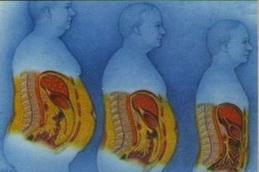What kinds of bariatric surgery?
Bariatric surgery, in simple terms, is engaged in the prevention, detection and treatment of the reasons expressed by the excess body weight, which is known as obesity.
Bariatric operations belong to complicated surgical procedures, changing the anatomy and / or volume the gastrointestinal tract. Some operations of this kind are conducted under general anesthesia and requires a midline incision of the anterior abdominal wall. Other bariatric surgeons prefer laparoscopic procedures, which are held using the small tool with a camera on the end, allowing viewing from inside the abdominal cavity.
There are two main types of bariatric surgery:
- Restrictive, such as the imposition of a gastric band and sleeve gastrectomy
- Combined: restrictive-malabsorptive such as gastric bypass surgery
In the first case, during operation using special parentheses and / or reduced capacity gastric band, resulting in a substantial reduction of the food, which can digest it. The second type of transaction includes not only a reduction in the volume of the stomach, but also the creation of paths bypassing the the upper small intestine, thereby reducing the amount of calories and nutrients entering the bloodstream.
How bariatric surgery affects the digestive processes?
Before surgery
In the mouth occurs chewing food, which is then swallowed and through the esophagus enters the stomach (roughly the size of a small melon). In the stomach, the food dissolves to smaller particles by means of gastric juice. The resulting semi-solid gruel (chyme) enters the small intestine, where it undergoes further digestion by enzymes and bile. The first, the shortest part of the small intestine - is the duodenum. There occurs absorption of calcium, iron, and some vitamins. The second and third sections of the small intestine are known as the jejunum and ileum, respectively. The length of each section is about three meters. Here, the bulk of nutrients food of is sucked causing its caloric, vitamins and minerals.
After surgery
During bariatric surgery there is a significant (90%) reduction in stomach: to the size of chicken eggs or thumb. As a rule, new stomach accommodates 3-4 tablespoons of food. Such a reduction in the size of the stomach significantly reduces the amount of food which a person can eat at one time, and accelerates processes saturation.
During bypass surgery is modified anatomy of the digestive tract behind the stomach. Leaving the a small gastric pocket, formed during banding, food "bypasses" the duodenum and into the final jejunum. As a result, in the blood enters substantially less calories and nutrients because the food passes the main part of the small intestine and less is contacting with the digestive enzymes.
Bariatric surgery requires the formation of new food habits?
Yes. All operations at digestive tract, aimed at reducing the weight, requires from patients significant changes in eating habits, and overeating a very bad effect on health. After bariatric surgery for the rest of the patient's life is exposed the risk of formation of the deficiencies nutrient.
Whether strongly reduced weight after bariatric surgery?
Some patients after bariatric surgery lose weight over 45 kg, and some - 90 kg. As a rule, the imposition of a gastric band is accompanied by a smaller weight loss than gastroplasty and bypass surgery, such as bypass surgery or Biliopancreatic surgery. Some patients are able to reach the normal body weight, while others retain its surplus although weigh significantly less than prior to surgery.
On our site are all specialists of this profile US. Find your bariatric surgeon and be healthy!
hide
 Bariatric surgery includes a variety of of procedures performed by on people suffering from obesity. Weight loss is attained by reducing the size of the stomach using the a gastric band or through removal of a portion of the stomach, or by resection and re-routing of the small intestine into the pouch of the stomach (gastric bypass)
Bariatric surgery includes a variety of of procedures performed by on people suffering from obesity. Weight loss is attained by reducing the size of the stomach using the a gastric band or through removal of a portion of the stomach, or by resection and re-routing of the small intestine into the pouch of the stomach (gastric bypass) 






